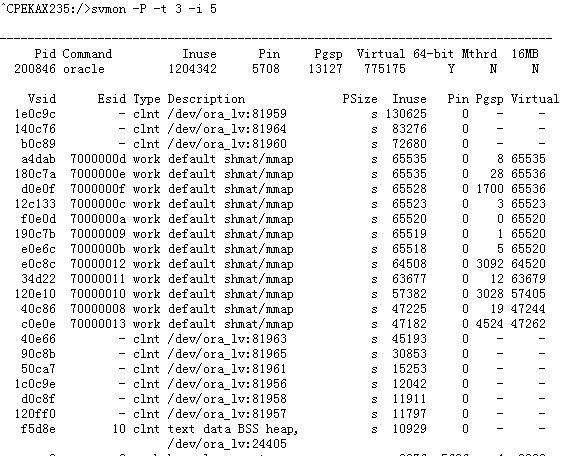- 如何提高自动化测试覆盖率和效率
测试者家园
人工智能软件测试质量效能软件测试人工智能测试覆盖率自动化测试CI/CD质量效能IT行业
用ChatGPT做软件测试在现代软件开发中,自动化测试已经成为保证软件质量的重要手段。然而,在实践中,自动化测试的覆盖率和效率常常受到限制,导致潜在缺陷未能及时发现或测试资源浪费。因此,提升自动化测试的覆盖率和效率是每个测试团队的重要目标。本文将详细探讨如何通过合理的策略、技术和工具提高自动化测试的覆盖率和效率,并结合具体案例阐述最佳实践。一、自动化测试覆盖率的定义与重要性1.覆盖率的概念测试覆盖
- 26. 【.NET 8 实战--孢子记账--从单体到微服务】--需求更新--用户注销、修改用户名、安全设置
喵叔哟
.NET8安全开发语言
在实际开发过程中,项目需求的变更和增加是常见的情况,因此这篇文章我们就模拟一下项目需求新增的情况。一、需求项目经理今天提出了新的功能,需要增加重置密码、安全设置、修改用户名、注销账户这四个功能,这四个功能必须是独立的(别问为什么用“必须”,有些产品经理就这么离谱),经过讨论整理出了如下大的需求。编号需求说明1重置密码1.输入旧密码、新密码和确认密码;2.旧密码需要验证。2安全设置1.更新邮箱和手机
- . 如何在 Vue 3 中使用组合式 API 进行代码的逻辑复用?
JJCTO袁龙
Vuevue.jsjavascript前端
如何在Vue3中使用组合式API进行代码的逻辑复用?在Vue3的生态中,组合式API(CompositionAPI)引入了全新的方式来构建组件,使得逻辑复用变得更加简单和灵活。在传统的选项API中,逻辑复用通常依赖于混入(mixins)和高阶组件(HOCs),并且这两者在某种程度上可能导致代码的复杂性及可读性问题。而组合式API通过函数的方式,使得逻辑复用变得更加明确且易于管理。本文将通过示例,带
- java快速入门之判断与循环
天启互联网工作室
java开发语言
一、流程控制语句在一个程序执行的过程中,各条语句的执行顺序对程序的结果是有直接影响的。所以,我们必须清楚每条语句的执行流程。而且,很多时候要通过控制语句的执行顺序来实现我们想要的功能。1.1流程控制语句分顺序结构判断和选择结构(if,switch)循环结构(for,while,do…while)二、判断语句:if语句2.1if语句格式1格式1:if(关系表达式){语句体;}执行流程:①首先计算关系
- Vue Router 中如何获取路由传递过来的参数?
晚夜微雨问海棠呀
面试题整理专题vue.jsjavascript前端
在VueRouter中,可以通过多种方式获取路由传递过来的参数。以下是几种常见的方法:使用this.$route.params在组件中,可以通过this.$route.params来访问路由参数。例如,假设你有一个路由配置如下:constroutes=[{path:'/user/:id',component:UserComponent}];在UserComponent组件中,你可以这样获取id参数
- Vue.js 的组合式 API 与状态管理
随着现代前端开发的不断发展,Vue.js作为一个渐进式JavaScript框架,已经成为开发动态和交互式用户界面的流行选择之一。Vue.js的设计旨在通过简洁的语法和强大的功能来提升开发者的生产力。在Vue3中引入的组合式API(CompositionAPI)及其状态管理功能,为开发者提供了一种灵活且可扩展的方式来构建复杂的应用程序。本文将深入探讨Vue.js的组合式API,并结合状态管理的概念,
- 深入理解检查约束:确保数据质量的重要工具
title:深入理解检查约束:确保数据质量的重要工具date:2025/1/20updated:2025/1/20author:cmdragonexcerpt:在数据库管理中,检查约束是一种重要的约束类型,用于确保表中某一列或某些列的数据符合特定条件,从而维护数据的有效性和一致性。检查约束通过对数据的有效性进行验证,防止无效或不合逻辑的数据进入数据库。categories:前端开发tags:检查约
- Vue 3.5 中的 useId:深入解析与应用实践
程序员
随着Vue3.5的发布,开发者们迎来了许多新特性和改进。其中,useId是一个备受关注的工具函数,它为开发者提供了一种简单而高效的方式来生成唯一的ID。本文将深入解析useId的实现原理、使用场景以及在实际项目中的应用实践。一、什么是useId?useId是Vue3.5中引入的一个CompositionAPI函数,用于生成唯一的ID。它的主要用途是为组件或DOM元素分配唯一的标识符,避免在SSR(
- 大端模式和小端模式
蝌蚪123456
java开发
转载自http://blog.csdn.net/hackbuteer1/article/details/7722667在各种计算机体系结构中,对于字节、字等的存储机制有所不同,因而引发了计算机通信领域中一个很重要的问题,即通信双方交流的信息单元(比特、字节、字、双字等等)应该以什么样的顺序进行传送。如果不达成一致的规则,通信双方将无法进行正确的编/译码从而导致通信失败。目前在各种体系的计算机中通常
- AI赋能职业发展:程序员的未来之路
前端
程序员,这个充满挑战和机遇的职业,正站在技术浪潮的潮头。一方面,蓬勃发展的科技不断催生着新的编程语言、框架和技术,要求程序员持续学习,快速适应;另一方面,激烈的行业竞争也使得程序员需要不断提升自身技能,才能在竞争中脱颖而出。然而,AI技术的崛起为程序员的职业发展带来了新的希望,它不仅能提升效率,还能帮助程序员拓展技能,应对未来的挑战。本文将探讨AI技术,特别是像ScriptEcho这样的AI辅助工
- 高效员工培训:AI赋能企业发展新纪元
前端
在当今竞争激烈的商业环境中,员工是企业最宝贵的资产。高效的员工培训不仅能提升员工技能,提高工作效率,更能增强企业核心竞争力,推动企业持续发展。然而,传统的员工培训模式往往存在效率低下、成本高昂、缺乏互动性等诸多问题。例如,传统的线下培训需要耗费大量时间和资源,难以满足员工个性化学习需求,培训效果评估也缺乏客观数据支撑。面对这些挑战,人工智能(AI)技术的应用为企业员工培训带来了革命性的变革,为构建
- 【YOLOv8改进】 YOLOv8 更换骨干网络之 GhostNet :通过低成本操作获得更多特征 (论文笔记+引入代码)
YOLO大师
YOLO论文阅读
YOLO目标检测创新改进与实战案例专栏专栏目录:YOLO有效改进系列及项目实战目录包含卷积,主干注意力,检测头等创新机制以及各种目标检测分割项目实战案例专栏链接:YOLO基础解析+创新改进+实战案例介绍摘要在嵌入式设备上部署卷积神经网络(CNNs)由于有限的内存和计算资源而变得困难。特征图中的冗余是那些成功的CNNs的一个重要特性,但在神经架构设计中很少被研究。本文提出了一种新颖的Ghost模块,
- 开启智能创作新时代,GLM-4-Plus为你定制!
人工智能
引言:为什么高效的内容创作如此重要?在当前竞争激烈的市场环境中,内容创作已成为品牌成功的重要支柱。无论是撰写营销文案、博客文章、社交媒体帖子,还是制作广告,优质的内容不仅能够帮助品牌吸引目标受众的注意力,还能有效促进产品和服务的转化。然而,创作高质量内容却常常需要投入大量时间和精力,这使得很多内容创作者感到力不从心。高效创作正成为现代内容创作者的迫切需求。如果你也为高效创作而苦恼,那么今天我们将为
- 探索AI API版本管理与流式传输实现
qwe54165a4wd
人工智能java数据库python
在现代软件开发中,API版本管理是一个关键的主题,尤其是在涉及到AIAPI的场景。API版本的变更会影响到服务的稳定性和功能的兼容性。因此,理解API版本管理的基本原理和具体实现,对于开发者来说至关重要。技术背景介绍API版本管理涉及到如何在不破坏现有客户端代码的情况下,逐步引入新的功能和改进。这对于AI服务尤为重要,因为AI模型和算法的更新频率相对较高。本文将重点介绍AIAPI版本的管理原则,并
- 如何一步步形成“代码屎山”——前端开发中的痛点与反思
前端
引言在一个大型项目中,随着功能不断扩展、需求不断变化、人员不断更替,代码的质量和可维护性可能会逐渐恶化,最终演变成所谓的“代码屎山”。你一定对代码屎山的形成和后果有深刻的体会。那么,究竟是什么原因导致了代码屎山的形成?如何在开发过程中避免掉进这一陷阱?本文将从多个角度剖析这一问题,并提出一些解决方案,希望能帮助大家减少开发中的痛苦,提升代码质量。第一章:什么是“代码屎山”?在正式探讨代码屎山的形成
- 如何理解DDoS安全防护在企业安全防护中的作用
服务器安全
DDoS安全防护在安全防护中扮演着非常重要的角色。DDoS(分布式拒绝服务)攻击是一种常见的网络攻击,旨在通过向目标服务器发送大量请求,以消耗服务器资源并使其无法正常运行。理解DDoS安全防护的作用,可以从以下几个方面来说明:1.维护业务连续性:DDoS攻击可能导致目标服务器过载,甚至无法正常工作,导致业务中断。DDoS安全防护可以帮助企业保持业务连续性,通过识别和过滤恶意流量,保持服务的可用性。
- 深入剖析Vue的provide与inject:如何实现跨层级数据共享
后端
引言在Vue开发中,provide与inject是两个非常有用的特性,它们常用于父子组件关系之外的跨层级数据传递。相比于props和$emit的传统方式,provide和inject可以更轻松地在多个组件之间传递数据,尤其是在深层嵌套的组件树中。它们在Vue2.2版本首次引入,Vue3中也得到了进一步的优化。尽管provide和inject的使用看起来非常简单,但其背后隐藏了复杂的实现原理。在这篇
- 6、ListView详解:构建可滚动的列表
piplab666
flutterui
在移动应用开发中,经常需要展示大量数据,如新闻列表、商品列表等。Flutter提供了丰富的滚动视图控件,其中最基础也是最常用的就是ListView。本篇博客将深入探讨ListView的各种属性、类型以及性能优化技巧,帮助您更好地利用这一重要工具。1.什么是ListView?ListView是Flutter中的滚动视图控件,用于展示一个可滚动的列表。它可以在垂直方向(默认)或水平方向滚动,内部包含一
- Vue项目打包部署与路由配置深度解析
程序员
在Vue.js项目的开发和部署过程中,配置打包路径和路由模式是两个至关重要的环节。下面,我们将详细探讨如何根据需求将Vue项目打包部署到域名的根路径或二级路径,并深入解析hash路由与history路由的配置方法。一、Vue项目打包部署1.配置vue.config.jsvue.config.js是VueCLI项目的配置文件,用于定制项目构建过程中的各种选项。其中,publicPath属性决定了打包
- 小明,谈谈Vue组件动态加载有哪些方式
程序员
动态加载组件可以显著提高应用的性能,优化用户体验,尤其是在大型应用中,合理的组件加载策略尤为重要。本文将探讨几种在Vue中实现组件动态加载的具体方案。1.异步组件Vue允许将组件定义为异步组件,从而在需要时动态加载它们。这可以通过使用import()函数来实现,具体示例如下:constAsyncComponent=()=>import('./components/MyComponent.vue')
- 如何保障网站数据传输更安全
安全服务器
在今天的互联网世界中,安全性是用户最为关心的问题之一。随着网络攻击和数据泄露事件的频发,人们越来越意识到选择安全的通信协议的重要性。在众多协议中,HTTPS因其卓越的安全性而逐渐取代了HTTP,成为网络通信的主流方式。HTTPS究竟为何比HTTP更安全呢?1.数据加密:保障传输过程中的安全性HTTPS最大的优势在于其强大的数据加密能力。它通过在HTTP的基础上引入SSL/TLS(安全套接层/传输层
- 小明,谈谈你对Vue nextTick的理解
程序员
一、nextTick的实现细节在Vue中,nextTick是一个重要的异步操作工具,用于在DOM更新完成后执行回调函数。其实现依赖于微任务机制,以确保操作在下一个“事件循环”中执行。以下是nextTick的具体实现过程:任务队列:当调用nextTick时,Vue会将回调函数存入一个数组(任务队列)中。每次触发数据变化时,这个队列会被处理。微任务调度:Vue首先尝试使用Promise.resolve
- 云原生主键模型:高效、弹性,省钱又省心
数据库大数据
作者简介:罗一鑫,StarRocksCommitter,主要负责存储引擎相关的工作。导读:在StarRocks3.3.1版本中,我们推出了云原生持久化索引,旨在解决本地磁盘持久化索引的关键问题。本文将详细探讨其优势,并对比云原生与本地磁盘持久化索引在大批量导入、小批实时导入以及弹性调度等场景中的表现。尤其在弹性调度场景中,云原生架构使延迟性能提升至本地磁盘的10倍。主键模型是StarRocks全新
- StarRocks on AWS Graviton3,实现 50% 以上性价比提升
大数据数据库数据湖云计算云服务
在数据时代,企业拥有前所未有的大量数据资产,但如何从海量数据中发掘价值成为挑战。数据分析凭借强大的分析能力,可从不同维度挖掘数据中蕴含的见解和规律,为企业战略决策提供依据。数据分析在营销、风险管控、产品优化等领域发挥着关键作用,帮助企业提高运营效率、优化业务流程、发现新商机、增强竞争力。低成本高效率的完成对海量数据的分析,及时准确的释放数据价值,已成为企业赢得竞争优势的利器。StarRockson
- Mybatis源码-加载映射文件与动态代理
大家好,我是半夏之沫一名金融科技领域的JAVA系统研发我希望将自己工作和学习中的经验以最朴实,最严谨的方式分享给大家,共同进步写作不易,期待大家的关注和点赞关注微信公众号【技术探界】前言本篇文章将分析Mybatis在配置文件加载的过程中,如何解析映射文件中的SQL语句以及每条SQL语句如何与映射接口的方法进行关联。在看该部分源码之前,需要具备JDK动态代理的相关知识,如果该部分不是很了解,可以先看
- Unity文件路径访问总结:从基础到高级的资源加载方法
Unity青子
Unity零基础系列课程unity
在Unity开发中,文件路径的访问和资源加载是开发者经常需要处理的任务。无论是加载纹理、模型、音频,还是读取配置文件,正确地处理路径和资源加载是确保项目顺利运行的关键。本文将以Unity文件路径访问为主线,详细介绍Unity中常见的路径访问方式,并结合代码示例、注意事项以及实际使用场景,帮助开发者更好地理解和使用这些方法。同时,本文还会延伸出更多相关知识,帮助用户举一反三,解决实际开发中的问题。1
- 2017-SIGGRAPH-Google,MIT-(HDRNet)Deep Bilateral Learning for Real-Time Image Enhancements
WX Chen
HDR技术深度学习神经网络机器学习
双边网格本质上是一个可以保存边缘信息的3维的数据结构。对于一张2维图片,在2维空间中增加了一维代表像素的强度slice操作(上采样)BilateralGuidedUpsampling这篇文章用双边网格实现图像的操作算子的加速。算法的核心思想是将一幅高分辨率的图像通过下采样转换成一个双边网格,在双边网格中每个格子就是一个图像的仿射变换算子,它的原理是在空间与值域相近的区域内,相似输入图像的亮度经算子
- 华为OD机试 - 手机App防沉迷系统(Python/JS/C/C++ 2024 D卷 100分)
哪 吒
华为odpythonjavascript算法七日集训
华为OD机试2024E卷题库疯狂收录中,刷题点这里专栏导读本专栏收录于《华为OD机试真题(Python/JS/C/C++)》。刷的越多,抽中的概率越大,私信哪吒,备注华为OD,加入华为OD刷题交流群,每一题都有详细的答题思路、详细的代码注释、3个测试用例、为什么这道题采用XX算法、XX算法的适用场景,发现新题目,随时更新。一、题目描述智能手机方便了我们生活的同时,也侵占了我们不少的时间。“手机Ap
- 使用LangChain构建简单LLM翻译应用
fGVBSAbe
langchainjava前端python
技术背景介绍在本教程中,我们将学习如何使用LangChain构建一个简单的语言模型(LLM)应用程序,该应用程序用于将文本从英语翻译成其他语言。虽然这个应用程序比较简单,但它是学习LangChain的一个不错的开始,因为许多复杂功能都可以通过简单的提示和LLM调用构建。核心原理解析LangChain通过链式调用多个组件,使得复杂的语言处理任务变得简单易行。我们将使用LangChain的以下功能:语
- Vue.js 的组合式 API 与状态管理
随着现代前端开发的不断发展,Vue.js作为一个渐进式JavaScript框架,已经成为开发动态和交互式用户界面的流行选择之一。Vue.js的设计旨在通过简洁的语法和强大的功能来提升开发者的生产力。在Vue3中引入的组合式API(CompositionAPI)及其状态管理功能,为开发者提供了一种灵活且可扩展的方式来构建复杂的应用程序。本文将深入探讨Vue.js的组合式API,并结合状态管理的概念,
- 项目中 枚举与注解的结合使用
飞翔的马甲
javaenumannotation
前言:版本兼容,一直是迭代开发头疼的事,最近新版本加上了支持新题型,如果新创建一份问卷包含了新题型,那旧版本客户端就不支持,如果新创建的问卷不包含新题型,那么新旧客户端都支持。这里面我们通过给问卷类型枚举增加自定义注解的方式完成。顺便巩固下枚举与注解。
一、枚举
1.在创建枚举类的时候,该类已继承java.lang.Enum类,所以自定义枚举类无法继承别的类,但可以实现接口。
- 【Scala十七】Scala核心十一:下划线_的用法
bit1129
scala
下划线_在Scala中广泛应用,_的基本含义是作为占位符使用。_在使用时是出问题非常多的地方,本文将不断完善_的使用场景以及所表达的含义
1. 在高阶函数中使用
scala> val list = List(-3,8,7,9)
list: List[Int] = List(-3, 8, 7, 9)
scala> list.filter(_ > 7)
r
- web缓存基础:术语、http报头和缓存策略
dalan_123
Web
对于很多人来说,去访问某一个站点,若是该站点能够提供智能化的内容缓存来提高用户体验,那么最终该站点的访问者将络绎不绝。缓存或者对之前的请求临时存储,是http协议实现中最核心的内容分发策略之一。分发路径中的组件均可以缓存内容来加速后续的请求,这是受控于对该内容所声明的缓存策略。接下来将讨web内容缓存策略的基本概念,具体包括如如何选择缓存策略以保证互联网范围内的缓存能够正确处理的您的内容,并谈论下
- crontab 问题
周凡杨
linuxcrontabunix
一: 0481-079 Reached a symbol that is not expected.
背景:
*/5 * * * * /usr/IBMIHS/rsync.sh
- 让tomcat支持2级域名共享session
g21121
session
tomcat默认情况下是不支持2级域名共享session的,所有有些情况下登陆后从主域名跳转到子域名会发生链接session不相同的情况,但是只需修改几处配置就可以了。
打开tomcat下conf下context.xml文件
找到Context标签,修改为如下内容
如果你的域名是www.test.com
<Context sessionCookiePath="/path&q
- web报表工具FineReport常用函数的用法总结(数学和三角函数)
老A不折腾
Webfinereport总结
ABS
ABS(number):返回指定数字的绝对值。绝对值是指没有正负符号的数值。
Number:需要求出绝对值的任意实数。
示例:
ABS(-1.5)等于1.5。
ABS(0)等于0。
ABS(2.5)等于2.5。
ACOS
ACOS(number):返回指定数值的反余弦值。反余弦值为一个角度,返回角度以弧度形式表示。
Number:需要返回角
- linux 启动java进程 sh文件
墙头上一根草
linuxshelljar
#!/bin/bash
#初始化服务器的进程PId变量
user_pid=0;
robot_pid=0;
loadlort_pid=0;
gateway_pid=0;
#########
#检查相关服务器是否启动成功
#说明:
#使用JDK自带的JPS命令及grep命令组合,准确查找pid
#jps 加 l 参数,表示显示java的完整包路径
#使用awk,分割出pid
- 我的spring学习笔记5-如何使用ApplicationContext替换BeanFactory
aijuans
Spring 3 系列
如何使用ApplicationContext替换BeanFactory?
package onlyfun.caterpillar.device;
import org.springframework.beans.factory.BeanFactory;
import org.springframework.beans.factory.xml.XmlBeanFactory;
import
- Linux 内存使用方法详细解析
annan211
linux内存Linux内存解析
来源 http://blog.jobbole.com/45748/
我是一名程序员,那么我在这里以一个程序员的角度来讲解Linux内存的使用。
一提到内存管理,我们头脑中闪出的两个概念,就是虚拟内存,与物理内存。这两个概念主要来自于linux内核的支持。
Linux在内存管理上份为两级,一级是线性区,类似于00c73000-00c88000,对应于虚拟内存,它实际上不占用
- 数据库的单表查询常用命令及使用方法(-)
百合不是茶
oracle函数单表查询
创建数据库;
--建表
create table bloguser(username varchar2(20),userage number(10),usersex char(2));
创建bloguser表,里面有三个字段
&nbs
- 多线程基础知识
bijian1013
java多线程threadjava多线程
一.进程和线程
进程就是一个在内存中独立运行的程序,有自己的地址空间。如正在运行的写字板程序就是一个进程。
“多任务”:指操作系统能同时运行多个进程(程序)。如WINDOWS系统可以同时运行写字板程序、画图程序、WORD、Eclipse等。
线程:是进程内部单一的一个顺序控制流。
线程和进程
a. 每个进程都有独立的
- fastjson简单使用实例
bijian1013
fastjson
一.简介
阿里巴巴fastjson是一个Java语言编写的高性能功能完善的JSON库。它采用一种“假定有序快速匹配”的算法,把JSON Parse的性能提升到极致,是目前Java语言中最快的JSON库;包括“序列化”和“反序列化”两部分,它具备如下特征:
- 【RPC框架Burlap】Spring集成Burlap
bit1129
spring
Burlap和Hessian同属于codehaus的RPC调用框架,但是Burlap已经几年不更新,所以Spring在4.0里已经将Burlap的支持置为Deprecated,所以在选择RPC框架时,不应该考虑Burlap了。
这篇文章还是记录下Burlap的用法吧,主要是复制粘贴了Hessian与Spring集成一文,【RPC框架Hessian四】Hessian与Spring集成
- 【Mahout一】基于Mahout 命令参数含义
bit1129
Mahout
1. mahout seqdirectory
$ mahout seqdirectory
--input (-i) input Path to job input directory(原始文本文件).
--output (-o) output The directory pathna
- linux使用flock文件锁解决脚本重复执行问题
ronin47
linux lock 重复执行
linux的crontab命令,可以定时执行操作,最小周期是每分钟执行一次。关于crontab实现每秒执行可参考我之前的文章《linux crontab 实现每秒执行》现在有个问题,如果设定了任务每分钟执行一次,但有可能一分钟内任务并没有执行完成,这时系统会再执行任务。导致两个相同的任务在执行。
例如:
<?
//
test
.php
- java-74-数组中有一个数字出现的次数超过了数组长度的一半,找出这个数字
bylijinnan
java
public class OcuppyMoreThanHalf {
/**
* Q74 数组中有一个数字出现的次数超过了数组长度的一半,找出这个数字
* two solutions:
* 1.O(n)
* see <beauty of coding>--每次删除两个不同的数字,不改变数组的特性
* 2.O(nlogn)
* 排序。中间
- linux 系统相关命令
candiio
linux
系统参数
cat /proc/cpuinfo cpu相关参数
cat /proc/meminfo 内存相关参数
cat /proc/loadavg 负载情况
性能参数
1)top
M:按内存使用排序
P:按CPU占用排序
1:显示各CPU的使用情况
k:kill进程
o:更多排序规则
回车:刷新数据
2)ulimit
ulimit -a:显示本用户的系统限制参
- [经营与资产]保持独立性和稳定性对于软件开发的重要意义
comsci
软件开发
一个软件的架构从诞生到成熟,中间要经过很多次的修正和改造
如果在这个过程中,外界的其它行业的资本不断的介入这种软件架构的升级过程中
那么软件开发者原有的设计思想和开发路线
- 在CentOS5.5上编译OpenJDK6
Cwind
linuxOpenJDK
几番周折终于在自己的CentOS5.5上编译成功了OpenJDK6,将编译过程和遇到的问题作一简要记录,备查。
0. OpenJDK介绍
OpenJDK是Sun(现Oracle)公司发布的基于GPL许可的Java平台的实现。其优点:
1、它的核心代码与同时期Sun(-> Oracle)的产品版基本上是一样的,血统纯正,不用担心性能问题,也基本上没什么兼容性问题;(代码上最主要的差异是
- java乱码问题
dashuaifu
java乱码问题js中文乱码
swfupload上传文件参数值为中文传递到后台接收中文乱码 在js中用setPostParams({"tag" : encodeURI( document.getElementByIdx_x("filetag").value,"utf-8")});
然后在servlet中String t
- cygwin很多命令显示command not found的解决办法
dcj3sjt126com
cygwin
cygwin很多命令显示command not found的解决办法
修改cygwin.BAT文件如下
@echo off
D:
set CYGWIN=tty notitle glob
set PATH=%PATH%;d:\cygwin\bin;d:\cygwin\sbin;d:\cygwin\usr\bin;d:\cygwin\usr\sbin;d:\cygwin\us
- [介绍]从 Yii 1.1 升级
dcj3sjt126com
PHPyii2
2.0 版框架是完全重写的,在 1.1 和 2.0 两个版本之间存在相当多差异。因此从 1.1 版升级并不像小版本间的跨越那么简单,通过本指南你将会了解两个版本间主要的不同之处。
如果你之前没有用过 Yii 1.1,可以跳过本章,直接从"入门篇"开始读起。
请注意,Yii 2.0 引入了很多本章并没有涉及到的新功能。强烈建议你通读整部权威指南来了解所有新特性。这样有可能会发
- Linux SSH免登录配置总结
eksliang
ssh-keygenLinux SSH免登录认证Linux SSH互信
转载请出自出处:http://eksliang.iteye.com/blog/2187265 一、原理
我们使用ssh-keygen在ServerA上生成私钥跟公钥,将生成的公钥拷贝到远程机器ServerB上后,就可以使用ssh命令无需密码登录到另外一台机器ServerB上。
生成公钥与私钥有两种加密方式,第一种是
- 手势滑动销毁Activity
gundumw100
android
老是效仿ios,做android的真悲催!
有需求:需要手势滑动销毁一个Activity
怎么办尼?自己写?
不用~,网上先问一下百度。
结果:
http://blog.csdn.net/xiaanming/article/details/20934541
首先将你需要的Activity继承SwipeBackActivity,它会在你的布局根目录新增一层SwipeBackLay
- JavaScript变换表格边框颜色
ini
JavaScripthtmlWebhtml5css
效果查看:http://hovertree.com/texiao/js/2.htm代码如下,保存到HTML文件也可以查看效果:
<html>
<head>
<meta charset="utf-8">
<title>表格边框变换颜色代码-何问起</title>
</head>
<body&
- Kafka Rest : Confluent
kane_xie
kafkaRESTconfluent
最近拿到一个kafka rest的需求,但kafka暂时还没有提供rest api(应该是有在开发中,毕竟rest这么火),上网搜了一下,找到一个Confluent Platform,本文简单介绍一下安装。
这里插一句,给大家推荐一个九尾搜索,原名叫谷粉SOSO,不想fanqiang谷歌的可以用这个。以前在外企用谷歌用习惯了,出来之后用度娘搜技术问题,那匹配度简直感人。
环境声明:Ubu
- Calender不是单例
men4661273
单例Calender
在我们使用Calender的时候,使用过Calendar.getInstance()来获取一个日期类的对象,这种方式跟单例的获取方式一样,那么它到底是不是单例呢,如果是单例的话,一个对象修改内容之后,另外一个线程中的数据不久乱套了吗?从试验以及源码中可以得出,Calendar不是单例。
测试:
Calendar c1 =
- 线程内存和主内存之间联系
qifeifei
java thread
1, java多线程共享主内存中变量的时候,一共会经过几个阶段,
lock:将主内存中的变量锁定,为一个线程所独占。
unclock:将lock加的锁定解除,此时其它的线程可以有机会访问此变量。
read:将主内存中的变量值读到工作内存当中。
load:将read读取的值保存到工作内存中的变量副本中。
- schedule和scheduleAtFixedRate
tangqi609567707
javatimerschedule
原文地址:http://blog.csdn.net/weidan1121/article/details/527307
import java.util.Timer;import java.util.TimerTask;import java.util.Date;
/** * @author vincent */public class TimerTest {
- erlang 部署
wudixiaotie
erlang
1.如果在启动节点的时候报这个错 :
{"init terminating in do_boot",{'cannot load',elf_format,get_files}}
则需要在reltool.config中加入
{app, hipe, [{incl_cond, exclude}]},
2.当generate时,遇到:
ERROR
